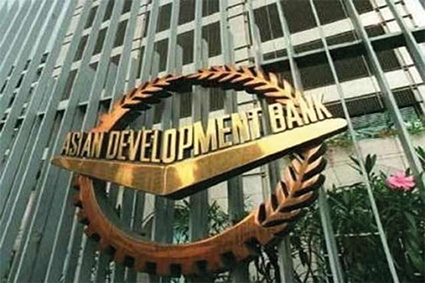Asian Development Bank Releases Latest Report on Georgia
The Asian Development Bank (ADB) annually publishes its Asian Development Outlook report. In its most recent edition, focused on Strengthening Disaster Resilience, the ADB predicts economic growth for Georgia in the next two years.
The annual Asian Development Outlook analyzes economic performance in the past year and forecasts performance in the next two years for the 45 economies in Asia and the Pacific that make up developing Asia. The ADB has supported Georgia since 2007 and is one of the country’s largest multilateral development partners, with a history of more than $2.8 billion in loans.
The report estimates that Georgia will see a 5% economic growth in 2019, as measured by GDP, and 4.9% growth in 2020, largely attributable to higher investment spending. It also assesses that the development of workforce skills will be essential for helping Georgia further strengthen its business environment and build related infrastructure, which will in turn contribute to the attraction of investments in high-revenue sectors.
Higher government investment in public and business-related infrastructure is expected to spark the next two years’ economic growth, along with increases in net exports, consumption, and overall investment. Growth sectors for 2019 include wholesale and retail trade, finance, and construction. High investment will increase growth in the agriculture sector to 2.6% in 2019 and 2.8% in 2020, but, the ADB warns, only “with favorable weather.”
“Georgia has proven attractive for foreign direct investments (FDIs) in the region with its business-friendly environment and increasing integration into global value chains,” said ADB Country Director for Georgia Yesim Elhan-Kayalar, commenting on the release of the report. She continued, “Georgia can reap significant economic dividends by leveraging its fast-developing facilitative infrastructure for economic connectivity within the country and in the region by further diversifying its economy and export base, while addressing skills mismatch in the labor market.”
Inflation is expected to peak at 3.2% this year before tapering off in 2020 to 3%. If inflation can hold at or below 3% through 2020, the National Bank of Georgia is likely to begin gradually reducing its interest rates. The ADB has expressed concern for Georgia’s high credit growth rate, which it expects to decrease during the forecast period due to further regulation of the credit industry and rising standards of creditworthiness. Credit growth is estimated to be 13% in 2019 and 12.5% the following year.
The report explains the importance of FDI in Georgia as a source of capital, due to low domestic investment and limited personal savings. Since 2005, the national FDI rate has nearly tripled. However, the ADB highlights, most FDI coming into Georgia is spent on existing, labor-intensive activities. The ADB would prefer to see more FDI going to more complex sectors of the economy with higher value added, such as manufacturing. One reason given for the difficulty of attracting FDI to Georgia is a shortage of qualified workers. In the vein of increasing investment in building a strong, well-educated workforce, the ADB insists that “stronger private sector involvement in training for entrepreneurship would help, as would efforts to encourage more women to enter business.”
The ADB cautions that there are several risks that may drag the positive outlook of the forecast down, namely “external shocks and escalating trade tensions, tighter credit, rising global interest rates, difficulties in financial markets, or reduced capital spending.” Growth could in fact be higher than predicted, though, if key trade partners such as Azerbaijan and the Russian Federation improve their economic performance.
ADB’s key development priorities in Georgia include fostering inclusive and sustainable economic growth, reducing poverty, enhancing regional connectivity, and improving public service delivery. ADB is committed to achieving a prosperous, inclusive, resilient, and sustainable Asia and the Pacific, while sustaining its efforts to eradicate extreme poverty.
By Samantha Guthrie
Image source: Asian Development Bank











